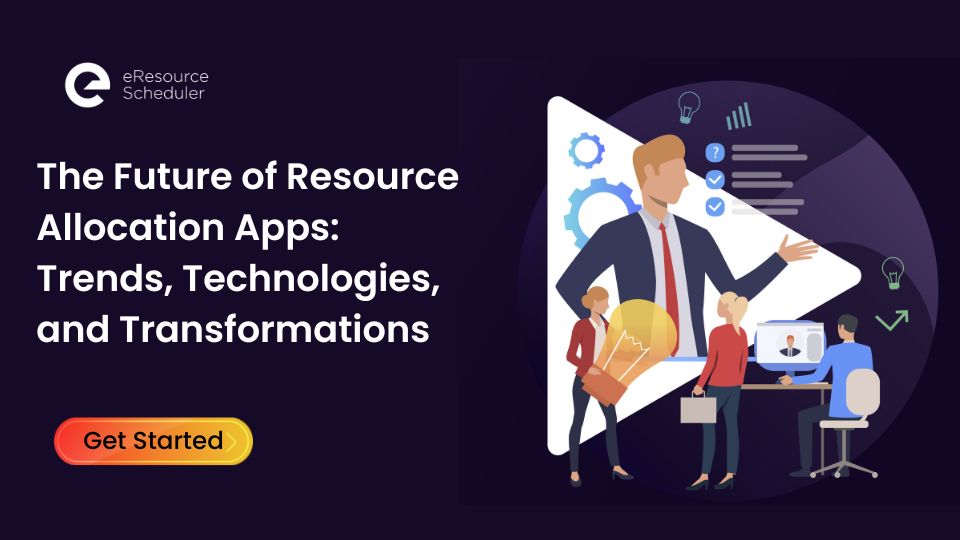
Resources are the most vital yet most expensive investment for any business. In order to be successful the organization needs to be able to efficiently allocate and manage its scarce resources. While many organizations used the pen-and-paper way of managing their talent, they quickly realized it wasn’t the most effective and cost-friendly way.
The state of resource allocation is rapidly changing. Technological advancements and changing economic conditions impact current and future resource management practices. The rise of resource allocation apps is one trend that is here to stay.
In this blog, we examine what resource allocation software is, and its importance, and also highlight some emerging market trends and challenges in optimizing the use of resources.
Resource allocation applications are digital tools that can be used to ensure that the right employee is matched with the right task. The apps make it possible to ensure employees are also given the appropriate workload. This practice will maximize their productivity, efficiency, and prof
A resource management app can also help companies to:
Resource allocation is the process of identifying the company’s critical goals and aligning resources in a manner that helps them achieve those targets. When resource allocation is done correctly, organizations are able to use their employees in the most efficient manner that generates the best returns.
Put simply, resource management is what drives the success of any project or company. The efficient allocation of resources is essential for project success, cost control, and meeting deliverables on time.
Let’s look at what the numbers say about the practice of resource management. We’ll dive into what these numbers mean as well.
What do these statistics signify? Well, it clearly shows that resource management is a top concern for businesses and adaptation of the right technology is key to overcoming this challenge.
We know that technology is the key to efficient management of resources. However, this technology can’t remain static. As the business landscapes evolve, new trends are emerging in the field of resource allocation. These trends shape how organizations manage their resources and optimize their operations. Here are some of the key emerging trends in resource allocation software:
In today’s world, the use of artificial intelligence and machine learning is increasing. More apps and software are using their algorithms to provide insights, predict resource needs, and automate the allocation process. And why not? Al and ML have the ability to analyze historical and current project data and suggest optimal resource allocation strategies with minimal errors and time. Apps with AI features help organizations make informed decisions, reduce manual effort, and improve resource utilization.
With the right of remote work, resource allocation software is becoming more sophisticated and tailored to manage resources spread across the globe. The demand for cloud-based software that serves as the single, centralized port for accurate and real-time insight into resource visibility, utilization, and project progress is key. The platform also has to have capabilities to track time and promote remote collaboration.
Nowadays, just assigning tasks based on job title is not practiced. There is a demand for a skills-based approach to resource allocation. Managers and apps are aligning people based on their abilities, competencies, and aspirations, not just their job titles. This approach to resource management enables the optimal and efficient allocation of talent by assigning the right people with the right skills to the right tasks.
Another key feature that is in high demand is predictive analytics. Predictive analytics are crucial for forecasting future resource needs using historical data, project pipelines, and market trends. With this, organizations can actively anticipate resource needs, prevent shortages, and secure the necessary talent.
In the current business landscape, businesses must be flexible and adaptable while allocating resources. With agile resource allocation methodologies, resources can be quickly adjusted and reallocated based on changing priorities, project demands, and market conditions. This ensures that the company can respond with effectiveness to new challenges and opportunities.
Today’s business climate also requires resource allocation tools that are easy to integrate with other project management and HR systems. Why is this important? Only a holistic view of resource utilization and employee data can lead to improved decision-making. Fragmented pieces of data that a resource manager has to generate and then put together is cumbersome and prone to error. Seamless and easy integration of platforms/apps leads to better data, improved decision-making, and proper alignment with overall business objectives.
Resource allocation goes beyond just optimizing efficiency. Companies today are aware of the need to balance workloads, prevent burnout and stress, and create a welcoming work environment. By using appropriate resource allocation tools, potential burnout risks can be identified and work-life balance can be ensured while promoting sustainable work practices.
The numbers and market trends not only show that resource management is the special ingredient for a company’s success but it can only be achieved by using the right software.
The truth is that resource allocation apps have a bright and promising future. As technology progresses and business requirements change, resource allocation apps are anticipated to become increasingly advanced, integrated, and user-friendly.
An employee management software that is cloud-based, data-centric, and has features that will promote a collaborative work scenario is the need of the hour. By finding a resource management app that acknowledges these trends, your business can enhance its efficiency, productivity, and overall success.
Seeking the right resource allocation app for your business? Why not check out eResource Scheduler? Our cloud-based application has all the dynamic features including time tracking, resource utilization, and forecasting data that will help you have the right employee for the right task, time and time again.
Start your trial now and use your resources effectively for guaranteed success.
Plan Smarter. Schedule Faster.
Join thousands already using eResource Scheduler to align teams, time, and tasks seamlessly.